The Transat: Batten down the hatches
Published on May 6th, 2016
(May 6, 2016; Day 5) – With 2,000 nautical miles sailed from Plymouth in under four days and 2,000 to go to New York, two of the world’s greatest solo sailors are still locked in a dual in The Transat bakerly this morning.
After a breathtaking dash south from Britain’s Ocean City to hunt down favourable west-going tradewinds, the giant trimarans Sodebo skippered by Thomas Coville and Macif skippered by his fellow Frenchman Fracois Gabart, are now positioned roughly halfway between the coast of Western Sahara and Florida.
With an average speed of 25 knots, the pair take it in turns to swallow up the lead as they go toe-to-toe in a route that has looked has looked more typical of a race to the Caribbean than to New York.
“After racing such a distance, our difference is ridiculous. It’s awesome! We wanted to get some competition, and it has delivered,” enthused Gabart speaking early this morning on the satellite phone.
Coville was thinking about a different sport altogether to help race followers understand the remarkable route he and Gabart have sailed. “To explain the strategy we have used in this race, you should interview Florian Rousseau, the greatest track cyclist of all time. He could tell you about the advantage of moving towards the outside of the track to take advantage of a slope. For us in this case we have moved (south) for a little more wind,” he said. “For us the route is long, but ultimately what matters is the intensity and effort that you put into everything on board that brings it all together.”
Coville and Gabart are not the only duo locking horns in the Transat bakerly. North of the Azores, Armel Le Cléac’h aboard Banque Populaire, and Vincent Riou aboard PRB, are enjoying their own battle.
Overnight both skippers began heading north, as they brace themselves for the first big phase of rough weather in the race. Later today they will be bashing into severe gale force headwinds as they tackle a classic east-going Atlantic depression.
In the Multi50 fleet, the class leader Lalou Roucayrol aboard Arkema is making slow progress as he begins to contend with the southern edge of the weather system. Heading south to avoid the depression, his rivals Gilles Lamiré aboard French Tech Rennes St Malo and Erik Nigon on Vers un Monde Sans Sida, are still enjoying a downwind sleigh ride before shifting their thoughts to the challenges ahead.
“Usually we expect the weather depressions in the early days of the race, but after five days in the trade winds, I am keeping an eye on the system that is slowly advancing towards the north of Spain, and I need to think about heading west,” commented Nigon.
“As I came down to Finisterre quickly, I will have to pass underneath the depression, and therefore expect headwinds while I am in the Azores of around 30 knots, gusting 40. This is serious but the boat is ready and I am rested.”
On French Tech Rennes St Malo, Lamire was in good spirits. “It’s going well, the boat and man are going well,” he said. “This wind is beginning to ease, we are still under gennaker but this time with a large mainsail. The boat is going well, I still have 14 knots of wind and the sea is beginning to flatten. Soon we will see the start of the depression, but I should not suffer too much.
“The first part of the race was pretty hard, especially at Cape Finisterre. I have not slept much since leaving, only last night to recharge my batteries. Before that I was only sleeping at small intervals as it was too hot. The first two days I hardly slept – one to two hours in 24 hours.”
Less than 50 nautical miles separates the top five in the nine-strong Class 40 fleet with Armel Tripon aboard Blackpepper paving the way. For the smallest boats in the fleet, their biggest challenge is yet to come, as Thibaut Vauchel-Camus aboard Solidaires en Peloton – ARSEP commented: “I’m pretty happy with my position in the north, although in hindsight I could have made that choice a few hours earlier, to position myself more in the west.
“The conditions have been cool and calm today, allowing me to make checks on the boat ahead of the depression that will tenderly greet the fleet late tomorrow afternoon…
“Everything is great onboard, British Pilot whales have been playing games along side the boat – the largest member of the dolphin family. It is the calm before the storm it seems.”
The class rankings at 0800 BST – updated every four hours.
Ultimes
1. François Gabart (Macif), 1986.5nm to the finish
2. Thomas Coville (Sodebo), 41.17nm to the leader
3. Yves Le Blevec (Actual), 74.26nm to the leader
IMOCA
1. Armel Le Cléac’h (Banque Populaire), 2120nm to the finish
2. Vincent Riou (PRB), 17.13nm to the leader
3. Jean-Pierre Dick (St-Michel Virbac), 39.72nm to the leader
MULTI50
1. Lalou Roucayrol (Arkema), 2,150.8nm to the finish
2. Gilles Lamiré (French Tech – Rennes St Malo), 128.78nm to the leader
3. Erik Nigon (Vers un monde sans SIDA), 172.03nm to the leader
CLASS40
1. Armel Tripon (Blackpepper / Les P’tits doudous par Moulin Roty), 2,388.5nm to the finish
2. Thibault Vauchel-Camus (Solidaires en Peloton – ARSEP), 21.69nm to the leader
3. Louis Duc (Carac) 24.62nm to the leader
Source: The Transat media
Event website – Tracker – Facebook
About The Transat
Twenty-five boats set sail May 2 2016 on one of the great races in solo sailing, the 3,050-nautical mile passage across the north Atlantic from Plymouth to New York. Alongside 24 competing skippers is a one-off entry by the French racing legend Loick Peyron who is sailing Eric Tabarly’s 44ft wooden ketch Pen Duick II in the same trim as she was when Tabarly raced her to victory in The Transat (then called the OSTAR) in 1964.
The OSTAR (Observer Singlehanded Trans-Atlantic Race) was created in 1960 by a handful of pioneering sailors. The race was organised every four years by the Royal Western Yacht Club (RWYC) from 1960 through to the 2000 event, albeit with a lot of involvement from the French event organiser Pen Duick in the 90s, in order to cater for the demands of the professional campaigns that dominated the event.
After the 2000 edition, OC Sport stepped in to develop the event and acquired the rights to the professional part. OC Sport organised The Transat in 2004 and 2008, the 2012 edition was deferred at the request of IMOCA (the largest competing class).
The RWYC continues to organise a solo transatlantic race for Corinthian and non-professional sailors that is still known as the (O)STAR,. This race usually falls a year after the professional big boat race i.e. 2005, 2009, 2013, 2017. Both the amateur Yacht Club event and The Transat have the right to link to the history of the original race created in 1960, and to the rich history it has produced.




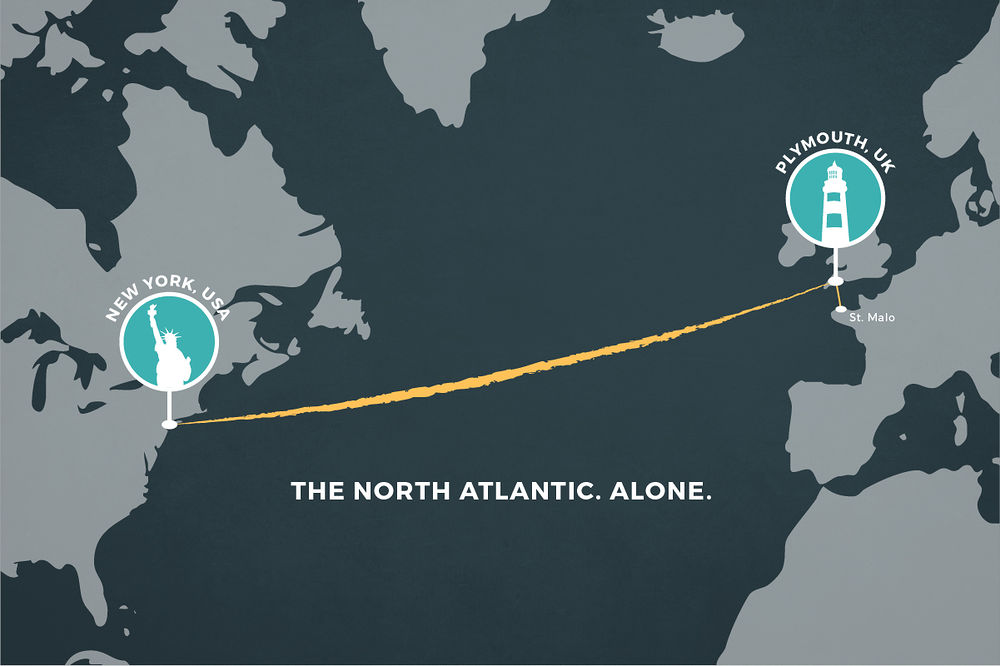

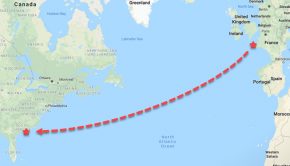
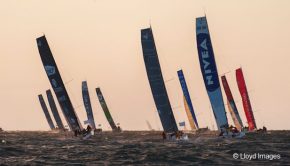
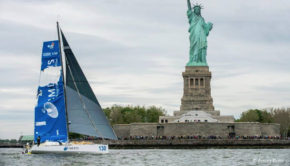
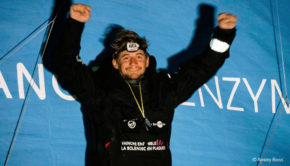
 We’ll keep your information safe.
We’ll keep your information safe.